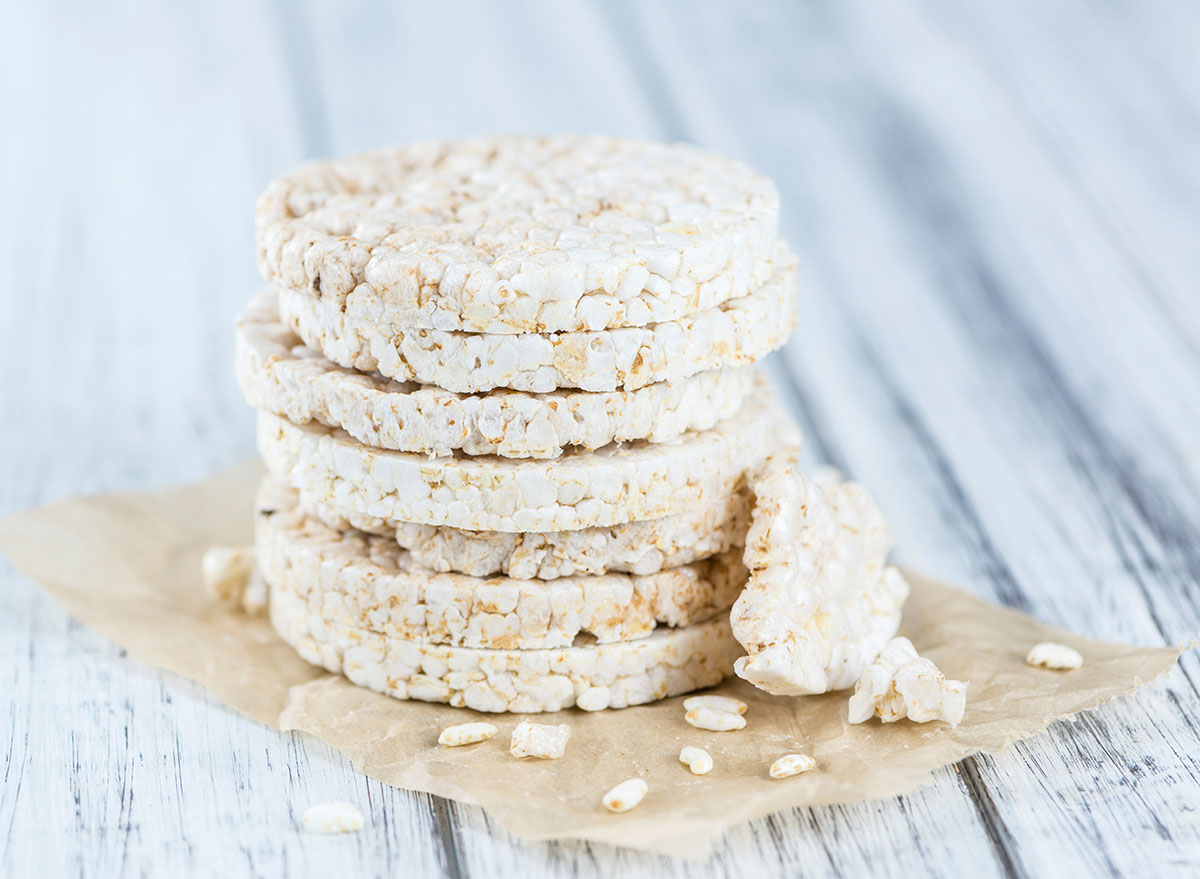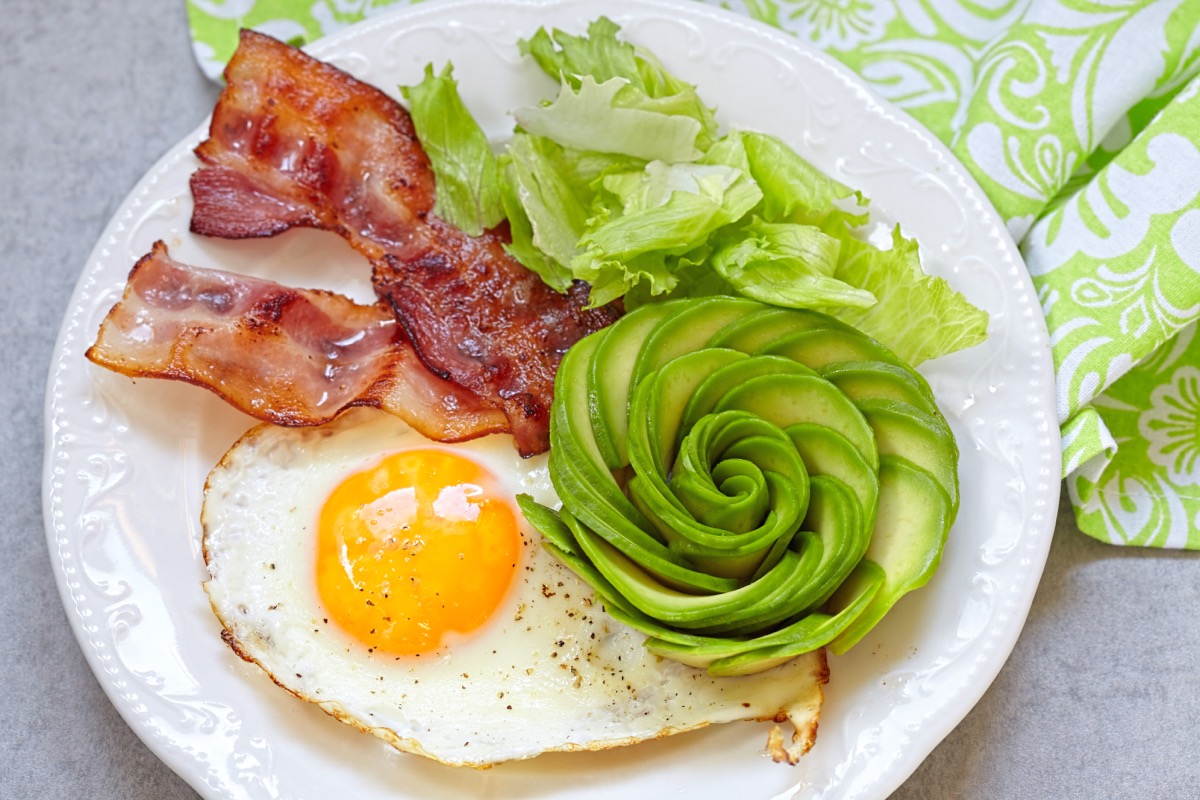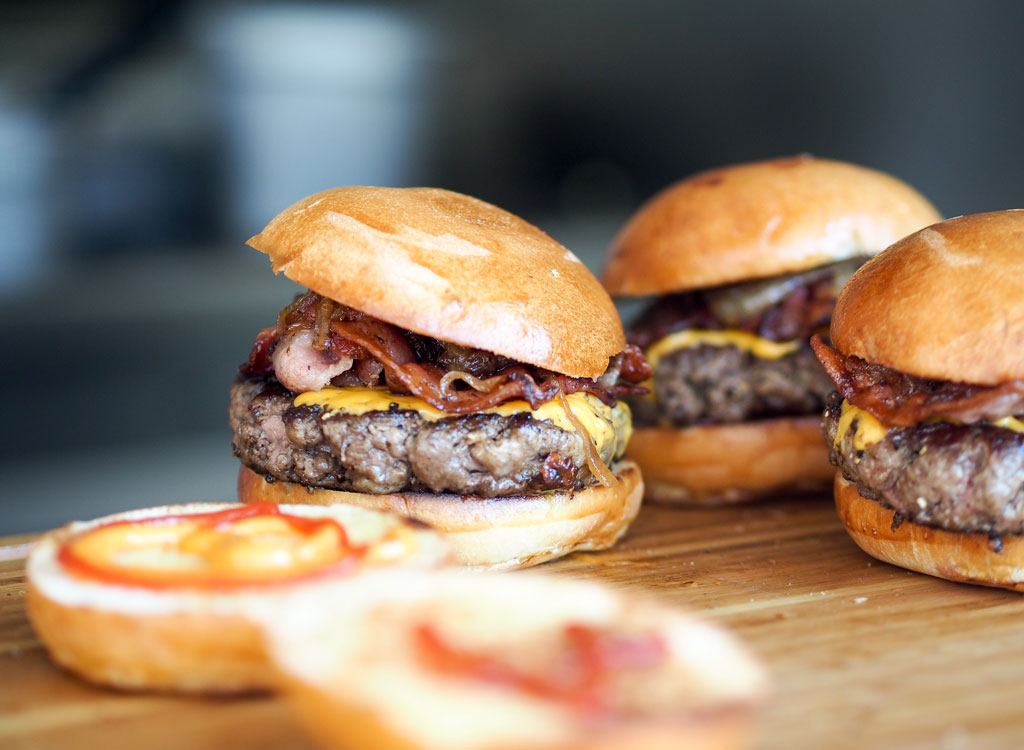Diet Habits That Are Wrecking Your Body, According to Dietitians

There is absolutely nothing wrong with wanting to be healthy. Eating a healthy diet, moving your body, and getting an adequate amount of sleep are all massively important for your body’s physical and mental happiness. However, if you’re constantly hearing poor dieting advice straight from toxic diet culture, it can be difficult to decipher what’s truly healthy and what’s not. That’s why we spoke with a few registered dietitians regarding popular diet habits that are completely wrecking your body.
While restricting your food and working out three times a day looks like the “epitome of health,” in reality, these diet habits are doing a lot of harm to your body. So before making any habit changes in your life, be sure to ignore these diet habits that are wrecking your body’s health. Then, set healthier habits for yourself with our list of 7 Healthy Eating Habits For Women, Say Dietitians.
Not eating enough.

If you’re restricting your food each day, it’s likely you are not eating enough to properly sustain your body. Lisa Young, PhD, RDN, author of Finally Full, Finally Slim, points out that eating too little can result in a slowed-down metabolism.
“This makes it even harder to lose weight,” says Young. “You feel overly restricted and then you tend to overeat.”
Here’s What Happens to Your Body When You Only Eat Once a Day, and why it’s massively unhealthy.
Focusing on “low calorie” foods.

“These foods, typically higher carb foods like rice cakes by themselves, or no fat added popcorn by itself, won’t keep you full for long, so you’ll be reaching for more food soon after,” says Rachel Paul PhD, RD from CollegeNutritionist.com. “When losing weight, it’s important to choose the most filling foods like proteins, fats, and high-fiber carbs like non-starchy vegetables.”
Related: Get even more healthy tips straight to your inbox by signing up for our newsletter!
Calling foods “good” or “bad.”

Toxic diet culture wants you to believe that there are “good” foods and “bad” foods out there, and by eating them you are associating yourself with those emotions. If you eat healthy foods you are “being good,” and if you are indulging in a treat you are “being bad.”
This popular diet habit can cause a whirlwind of issues in regards to your mental and physical health.
“This only creates many concerns such as using food as a reward or punishment and may lead to food obsessions,” says Cheryl Mussatto, MS, RD, LD from Eat Well to Be Well. “This type of thinking does not help a person learn healthy eating habits. When a person is restricting foods or is not responding to bodily hunger, this can lead to further complications such as constipation or even dehydration if they are restricting fluids too.”
Seeing exercise as a punishment.

It seems like the common response to eating an indulgent meal is the urge to “work out” and “burn off the calories.” With this type of mindset, working out is seen as a punishment for enjoying a meal, which can negatively affect your relationship with movement. Plus…working out doesn’t move the needle much in terms of weight loss.
“The research has shown that exercise is not necessary for weight loss—although of course exercise is beneficial for many other reasons,” says Paul. “Instead, choose a type of exercise that you love doing. Walking, dancing, yoga—they all count.”
Going ultra low-carb.

“The ketogenic diet can be a damaging approach to weight loss, especially from an internal perspective,” says Trista Best, MPH, RD, LD from Balance One Supplements. “The condition known as ketoacidosis can occur once the body has been void of carbohydrates as fuel for a long time and results in excessive amounts of ketones flushing the body. This rush of ketones can create a state of shock with side effects ranging from mood issues to rash and even organ failure.”
Best also points out that constipation is a common side effect of the keto diet, usually because the bulk of dietary fiber comes from carbohydrates in your diet—which helps with your digestion and your bowel movements.
Here are 9 Warning Signs You’re Not Eating Enough Fiber.
Having “cheat meals.”

It’s not that you shouldn’t eat the foods you love—like cheeseburgers or pizza. It’s the mindset around these foods that are causing issues with your diet.
“If you’re feeling like you need a ‘cheat meal’ this is a sure sign that your food habits are overly restrictive,” says Rebecca Washuta, licensed dietitian nutritionist and project manager at Noom. “These types of approaches to food and weight loss usually aren’t sustainable and can result in regaining the weight you’ve lost.”
This goes back to the labels that we place on our foods. When a food is labeled as “bad,” then we feel deprived from it and desire to have it for a “cheat meal.” However, Washuta says it’s important to “lose the label” and to not categorize any food as off-limits.
“When you learn to honor your cravings and allow yourself to mindfully enjoy the foods you love, there’s no need for a cheat meal! Instead, you can find a personalized balance with all foods and still reach your wellness goals.”
Eliminating entire food groups.

“Completely eliminating food groups, such as grains, dairy, or fruit can set you up for nutrient deficiencies,” says Brenda Braslow, RD, MS, with MyNetDiary. “For example, eliminating grains could result in very low energy due to low carb intake and result in inadequate B vitamins and iron intake. Carbohydrates are the body’s preferred energy source.”
The same goes for all kinds of nutrients. Braslow points out how inadequate folic acid can cause issues with prenatal health, inadequate iron intake can lead to anemia, and eliminating fiber can cause constipation and creates a higher risk of colon cancer.
Related: This Is Why You Should Get Nutrients From Food, Not Supplements
Jumping from one fad diet to another.

The term is called yo-yo dieting, where you go back and forth between periods of time where you are trying a crash fad diet and periods of time where you are “eating normally.” This can cause issues with one’s ability to be able to read their body’s nutritional needs.
“Over the years of following restrictive diets, a person can completely lose touch with internal signals of hunger and fullness, forget what healthy nutrition looks like, and end up with a poorly balanced diet because they have so many restricted foods,” says Braslow. “This can lead to a cycle of weight loss and frustrating weight regain. Years of extreme weight fluctuations can be mentally difficult and lead to a higher and higher body fat percentage.”
Instead, focus on these 17 Healthy Eating Habits To Start Today, According To Our Medical Experts.








